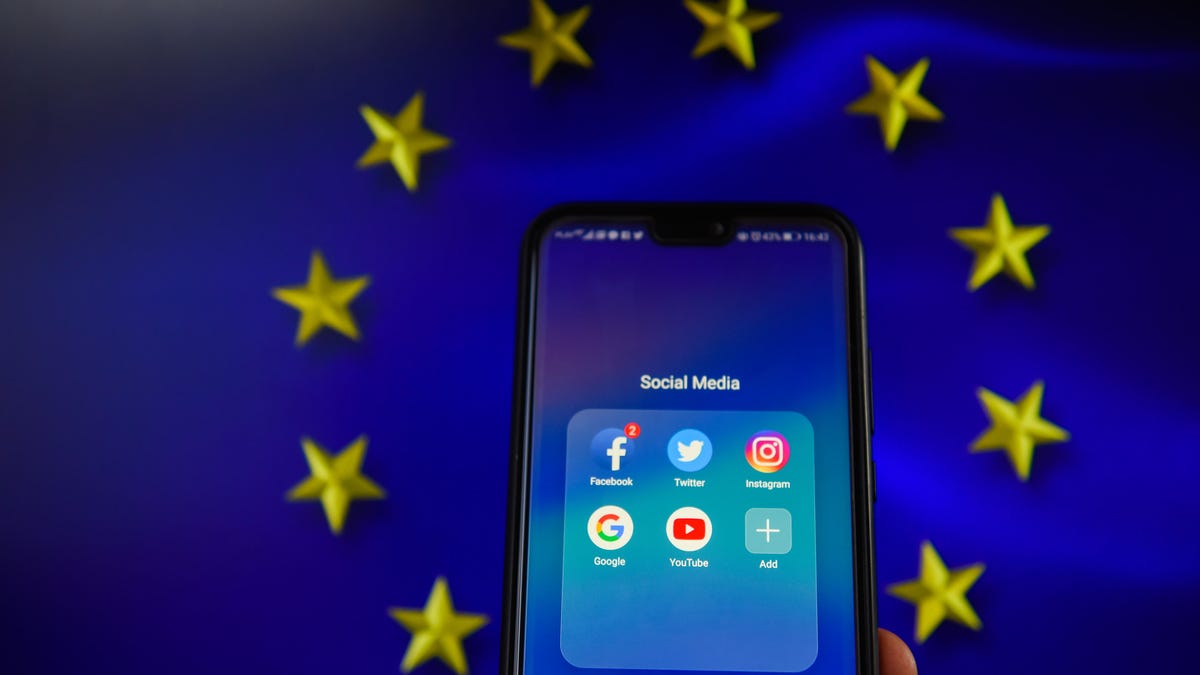EU's approach to tackling hate speech might actually be working
Social networks now remove 72 percent of content reported as illegal hate speech. That percentage was 28 percent in 2016.

Some social networks (Facebook) are making more progress than others (Twitter).
Social media companies are removing hate speech from the internet more quickly and efficiently than ever -- in Europe at least.
The EU released a report on Monday showing that 89 percent of content flagged to social networks gets analyzed within 24 hours, and that the companies remove 72 percent of content reported as illegal hate speech in total.
Social networks have come a long way in the past three years, the report shows. When the EU began cracking down on hate speech in 2016, these rates stood at 40 percent and 28 percent, respectively.
"In May 2016, I initiated the code of conduct on online hate speech, because we urgently needed to do something about this phenomenon," said Vĕra Jourová, European commissioner for justice, consumers and gender equality, in a statement.
"Today, after two and a half years, we can say that we found the right approach and established a standard throughout Europe on how to tackle this serious issue, while fully protecting freedom of speech."
Rather than legislate on the issue of hate speech, forcing tech companies to comply with laws and punishing them if they failed, the EU decided it would introduce an opt-in code of conduct to tackle the problem of hate speech.
Facebook , Microsoft, Twitter and YouTube were all inaugural signatories of the code, with Instagram also signing up in January 2018, bringing the total number of participating companies to nine. The companies agreed to increase the amount of content they removed, as well as to attempt to assess the majority of reports of hate speech within 24 hours of being notified. They're also required to give feedback to people who flag content.
The EU conducts annual reports on the progress of the companies and is pleased with the results this year, although it says the social networks need to work harder at providing feedback to people who file complaints.
How the social networks measure up
The EU's report casts Facebook in a particularly favorable light, showing that the company assesses 93 percent of notifications it receives regarding hate speech within 24 hours of receiving them -- the highest rate of all the social networks signed up to the code.
YouTube, the report shows, removed more content than Facebook in 2018, and managed to assess 81 percent of content within 24 hours. But it fell down when it came to giving feedback to users, interacting on average with only 25 percent of people who reported content to the video service.
There are now over 10,000 people at the company working on combating hate speech, said Matt Brittin, Google's Europe president, in a statement. "They're all working to stamp out abusive content and to make sure we have the right systems, technology and policies in place to keep improving," he said. "While there's no place for complacency, today's results show we're making progress."
Like Facebook, Twitter is also good at dealing with notifications, tackling 88 percent of reports within 24 hours, but when it comes to removing content, it's a different story. The social network has by far the lowest rate of removing content, taking down just 43 percent of reported posts, compared with 82 percent on Facebook and 85 percent on YouTube, and the number is down year on year. The services do all vary in terms of the kind of content they must police, although the difference in numbers is stark.
Over the past few years critics around the world have pointed fingers at Twitter for not taking a harsh enough line on hate speech. Last year Twitter CEO Jack Dorsey admitted the company has a problem with harassment and abuse and vowed to clean up its act, introducing a range of new measures in June. Dorsey finally booted Infowars founder Alex Jones from the social network after previously defending his presence. He also admitted Twitter had been slow to delete a tweet threatening Meghan McCain.
Karen White, Twitter's director of public policy for Europe, pointed to the Lumen Database and Twitter's annual transparency report for more details about the content it removes from the social network.
"We've also enhanced our safety policies, tightened our reporting systems, increased transparency with users, and introduced over 70 changes to improve conversational health," said White in a statement. "We're doing this with a sense of urgency and commitment, and look forward to continued collaboration with the European Commission, Governments, civil society and industry."
First published Feb. 4 at 11:50 a.m. PT.
Update at 2:50 p.m. PT: Adds comment from Google.
Update Feb. 5 at 4:27 a.m. PT: Adds comment from Twitter.
Infowars and Silicon Valley: Everything you need to know about the tech industry's free speech debate.
CNET Magazine: Check out a sample of the stories in CNET's newsstand edition.

